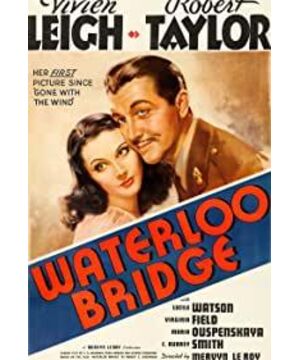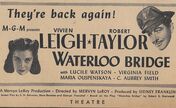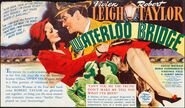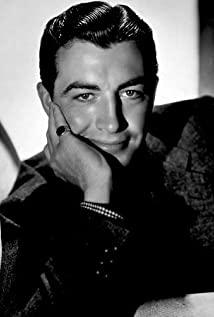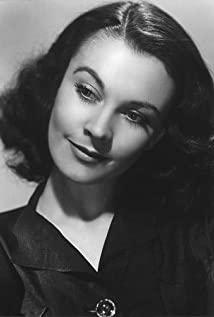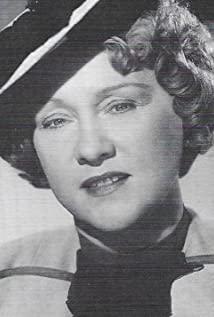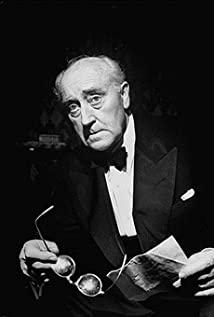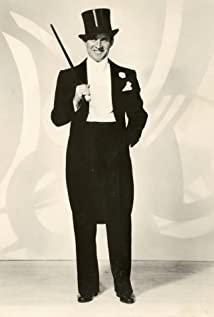In fact, the story told by Soul Broken Blue Bridge, at first glance, should be the most third-rate romance novel.
The handsome and golden lieutenant Roy and the beautiful, graceful and gentle ballet dancer Mara fell in love at first sight on Waterloo Bridge. In just one night, it was private for life. Mara's heroine halo shines all the way, and it's easy to get the Prince Charming that mortals dream of.
But just like the Korean dramas have to get people to get cancer to deceive some tears, just when Roy and Mara planned to go to church to get married when they were in love, Roy was recalled to the battlefield early. Marla went to see him off at the station, only to have a quick glance, and lost her job to make ends meet. Because of the wrong information in the newspaper, Mara thought Roy had died in battle. In desperation, Mara became a prostitute in order to survive.
Since then, the tragic end has been doomed. Although Roy and Mara met miraculously at the station afterwards. But because Mara couldn't bear to tell Roy the truth, she chose to use death to bury this secret forever on the Waterloo Bridge where they met.
In addition to the appearance of Vivien Leigh and Robert Taylor, I think the reason why this film can endure for a long time is because of the seemingly dog-blooded plot, it actually tells the real helplessness of a loving couple in the war years, and a The tragedy of the times.
The story takes place in the First World War. People lost their jobs, lost their families, lost their basic right to walk in broad daylight without fear of being hit by shells. Roy and Mara's seemingly beautiful encounter didn't happen in a cafe or a fancy restaurant, but in a bomb shelter. in a place full of fear.
The most impressive is the conversation between Roy and Mara over their first dinner.
Mara: "What's so good about our meeting? What's so good about seeing you again?"
Roy: "So what's good then? What's good about us being alive? ... We are alive because encounters like ours can happen. If it weren't for being overwhelmed by the fear of death, I would I won't feel as clearly alive as I do now. In times of peace I'd just take my survival for granted."
Mara: "But your price for this beauty is too high. Do people have to kill each other to give them a clear sense of life?"
Roy: "You're excited about life and it has nothing to do with people killing each other. I've never been able to wait patiently for the future. When I was a kid, I climbed to the top of a very tall tree. up, stood there like a diver and declared, 'I'm going to take the leap into the future!' and then jumped off. I was in the hospital for two months."
Their conversation begins with an esoteric philosophy and ends with a childhood embarrassment. Behind the laughter are the different ways Mara and Roy looked to life in the war years.
Mara is a "defeatist" who sees war years as a time of killing and displacement. She felt powerless and hopeless about life.
Roy, on the other hand, is an optimist. He chose to face it proactively in the war years. As an officer, he went to the front line to defend his homeland. As a man, he married his beloved woman and found the light of life in the dark.
Throughout the film, Mara has been passive in this relationship. Roy proposed to her with fiery love, infected her with optimism, and made her fall in love desperately.
When Roy received the notice to be transferred back to the front line, despite reluctance, Roy chose to leave by train as soon as possible. Because Roy believes that he will come back and the bright future will continue. Marla, on the other hand, would rather blatantly disobey her coach and send Roy one last ride because she thinks it might be their last. She has no confidence in their future.
In the end, she and Roy were miraculously reunited, but she still couldn't overcome her inner fear of the future. She didn't want Roy to know her shameful past, and she didn't think Roy could forgive her in the end. For this reason, she would rather use her life to keep Roy's beautiful memory of their love.
The tragedy of this love at Waterloo Bridge began and ended in war. Their encounter in the dugout on Waterloo Bridge was also separated by the bitter fruits of war. Their tragedy is because they have different visions of the future, but also because the war has made their difference a separation of life and death.
Marla is pessimistic, but in peaceful times, she doesn't think her fiancé is dead because of newspaper misreporting, and she doesn't turn into a prostitute because she can't find a job. She may just worry about gains and losses in a beautiful love and wonder why she is so lucky.
Roy is optimistic, but in peaceful times, he would not leave his fiancée to fight on the front line just the day before his wedding because he is an officer. He just jumped down from the tree and was admitted to the hospital, laughed and scolded Marla as a pessimist, and then faced life with her.
Therefore, in the end of Soul Broken Blue Bridge, it can only be a tragedy of an era. It is a tragedy caused by the difference between a loving couple being infinitely magnified by the war.
There are thousands of writings about war, but none break our hearts so much. It is because in them, we have seen the same beautiful love as ours, and also saw the helpless ending of the beautiful love in the war years.
View more about Waterloo Bridge reviews


